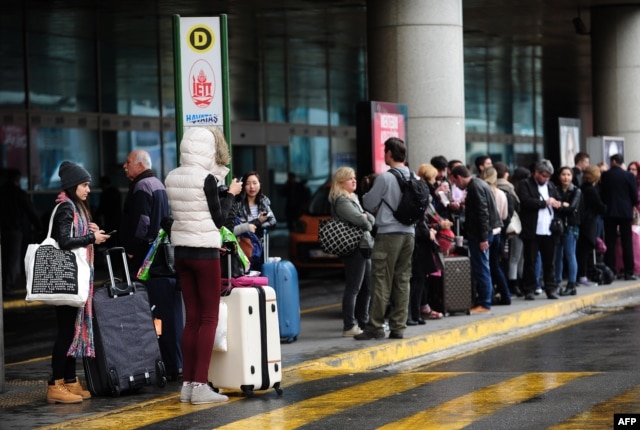
Turkey’s President Will Head to Russia to Repair Ties
VOA
“It’s significant for both because both of them have to bargain hard with the West,” said Alexander Baunov of the Carnegie Moscow Center, a research center focused on domestic, foreign, economic and security policy.
Putin’s concerns are economic sanctions and normalization of relations with the West, Baunov said. Erdogan feels that in the wake of putting down the coup attempt, he has been «criticized too much by the Western politicians, journalists and media. For him to bargain means to show that he can get closer to Russia and alienate himself from the West.”
Erdogan was livid after Western criticism of his massive crackdown on perceived opponents following the coup attempt, and Russia was quick to condemn the insurgents. More than 270 people died during the failed attempt by some elements of the military. Erdogan has blamed a Turkish cleric living in self-imposed exile in the U.S. for orchestrating the coup.
Betrayal seen
Erdogan viewed the Western response as betrayal, said the Moscow State Institute of International Affairs’ Victor Mizin.
“So, what he decided, it’s some kind of his version of ‘pivot to the East,’ promoting the relations with such countries like Azerbaijan, Iran, Kazakhstan,” Mizin said.
But the relationship with Russia is the most important tactically, and not just for Turkey.
“Now it’s very important [for Russia] to turn this country — which was the spearhead of NATO against the Soviet Union in the past, and where so many intelligence assets or radars had been placed to monitor Russian military activity — to draw it back to Russia and to resume good relations,” Mizin said.
Tuesday’s meeting will be the first between the two leaders since relations fell apart over Turkey’s downing of a Russian bomber in November along its border with Syria.
The face-to-face talks in St. Petersburg are expected to focus on restoring economic ties that were severed after a Turkish F-16 shot down the Russian SU-24, resulting in the deaths of one jet pilot and a rescue pilot who died during a recovery attempt.
FILE – People wait in front of Ataturk airport in Istanbul, Turkey, March 31, 2015. Turkey advised its citizens to delay non-urgent travel to Russia, one of the moves made in a diplomatic spat over the downing of a Russian warplane last November.
Accusations, sanctions
The incident sparked finger-pointing, Russian sanctions and fears of a wider conflict between Russia and the NATO member. Moscow accused Ankara of supporting terrorism, while Turkey accused Russia of violating its airspace and bombing civilian targets inside Syria.
Russia imposed costly economic sanctions on Turkey, including banning Turkish food imports as well as Russian vacationers from visiting Turkey. The result was a multibillion-dollar blow to the country and its important tourist trade.
But a surprisingly fast rapprochement came in late June after Erdogan gave a long-demanded apology, expressing regret to the families of the two pilots in a letter to Putin. More recently, he accused the pilots of the Turkish F-16 of being involved in the coup. They were arrested earlier.
Political analysts say while Erdogan’s quick 180-degree turn was motivated by the economic damage caused by lost Russian trade, tensions with his Western allies in Europe and the United States have spurred the face-to-face meeting with Putin.
End of ties to West unlikely
Some minority calls inside Turkey for Ankara to seek a strategic partnership with Russia to replace ties with the United States and the European Union are unlikely to gain ground.
“At the same time, I think it would be unrealistic to think that Turkey could be banished or ousted from NATO as certain American experts, especially on the conservative side, would suggest, because as I said, strategically, Turkey is too important,” Mizin said.
While progress in the talks is expected on economic issues, the conflict in Syria remains a sticking point.
Russia’s bombing campaign in support of Syria’s President Bashar al-Assad had already put a chill on relations between Moscow and Ankara, which supports rebel groups in Syria’s five-year civil war and wants to see Assad leave power.


